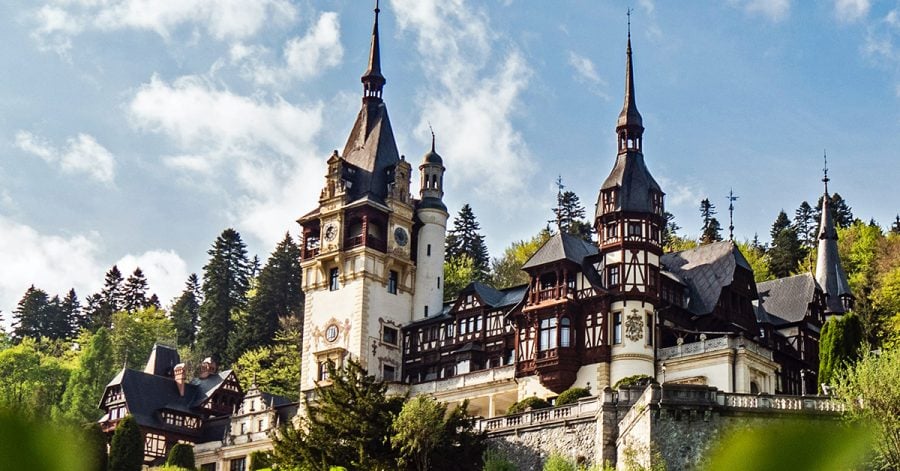Alexandru Filip launched a new travel tech startup in full lockdown. The idea for Pickatrip.ro appeared last spring with the ambition to help the tourism industry recover faster post-pandemic. The platform offers holidays with a discount in Romania.
Today, The Recursive takes a look at how tech can support tourism to bounce back and discover new ways to attract customers.
Pickatrip has been running the beta version for a few months, after an initial investment of approximately €10K. For now, users can test it for free for a month to check out exclusive offers. But the founders aim to go international with their solution.
The business model targets companies, which can offer their employees accounts with unlimited access to Pickatrip’s travel deals, with 30-40% lower fees than what travel agencies propose. The monthly fee for the employer is between €1.9-€3.9 per employee, depending on the number of employees. Employers can also fund an account with a specific sum to reward the best performers in their company.
“We developed the platform for local businesses and national companies to complete the package of extra-salary benefits offered to employees and out of the desire to encourage them to travel more. Many studies have shown that those who travel frequently are the happiest and most productive at work,” adds Alexandru.
The team is currently focusing on expanding its portfolio of partner locations and generating awareness. To reach the target of 5000 users by 2022, the founder is interested in a pre-seed investment round next year to develop the platform and mobile apps.

Tourism in Romania from 2019-2022
“Out of the total of 8500 homologated accommodation units in Romania, 500 were permanently closed in the last two years. To these are added about 10K restaurants and cafes. So the impact of the coronavirus was huge in Romania, as in most countries. Hence our declared ambition to contribute to the recovery of tourism, practically the main employer in the world,” Alexandru says.
In 2019, Romania recorded 13M travelers, both locals and tourists, while in 2020 there were only 6M visitors. Pickatrip’s founder believes that 2022 will be better than 2021, but it will not match the time before the pandemic. Since the vaccination rate is still quite small, 35% in Romania, he believes domestic tourism will be a priority for locals.
This outlook is shared by another local tourism tech founder, Raluca Jianu. Her startup Epic Visits, a hybrid between a travel agency and a booking platform, was also founded in 2020.
In May 2021, she did a study in collaboration with AHA Moments, a Bucharest-based research company launched in 2020, with over 1000 Romanians between the ages of 16-55, living in big cities surveyed. The results show that this year, 76% of people wanted to travel, with 51% inside the country, and 10% outside of it.
For 2022, 88% of respondents intend to travel, 38% inside the country, 24% outside of the country, and 26% will travel both locally and internationally. Raluca shared in a previous interview that Romanians prefer to travel inside the country, focusing on quality and exploring. She believes that the travel tech players need to address the consumers’ needs, by saving time and offering personalized offers.
“People are optimistic when it comes to traveling. ‘Revenge travel’, the strong desire to travel even more than before Covid-19, is a trend to watch for in the coming years,” she concludes.

How can tech help the tourism industry?
Raluca Jianu’s first year as a startup founder in tourism was an intense one. The team had to change their business model and make adjustments based on clients’ feedback. They focused on B2B partnerships with companies from banking, IT, and the alcoholic beverages sector to connect travelers and hosts sharing the same values.
She believes technology has helped reduce costs, improve services, and customer experience. As such, she thinks it will continue to shape the industry, helping suppliers become efficient and aid in offering secure tools to discover, plan, and book getaways.
For next year, Epic Visits plans to focus on product development, offer personalized customer experiences, and tackle new countries. They will keep the B2B focus.
“We target the key user’s two main needs: value and customizability. The value stands in the epic factor – design, experience, story. We target 10% of the market. Customizability allows travelers to search by various filters, like price, distance, and theme to find the best getaway in the shortest time. They can either choose stays or combined stays and experiences. Soon, with the Mix and Match experience configurator, which is currently in beta, they can customize their own experiences if the added packages don’t meet their needs,” she describes the Epis Visits system.
These aren’t the only two solutions on the market. A B2C initiative in this changing vertical is Framey, which raised over 800K to disrupt travel. The 2019 startup developed a mobile app as a scalable social network where people can socialize, share visuals, and others can get inspired and plan their next trip.
Questo is another mobile platform launched in 2017 that turns cities into playgrounds and that has raised over €1M. Tourists and locals can follow clues, unlock new sights, and learn about the country’s history.
These B2B and B2C solutions in the tourism vertical use technology to help companies grow, keep their employees engaged, and tourists get to access new ways of doing things, from discovering uncharted territories safely, to having a fun city guide inside your pocket.
>>> If you want to dive deeper into how technology can help other markets, we have also researched how it helped the HORECA industry in Romania. <<<







